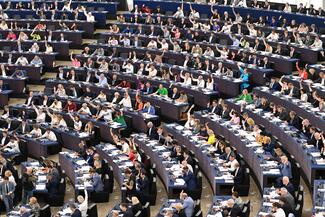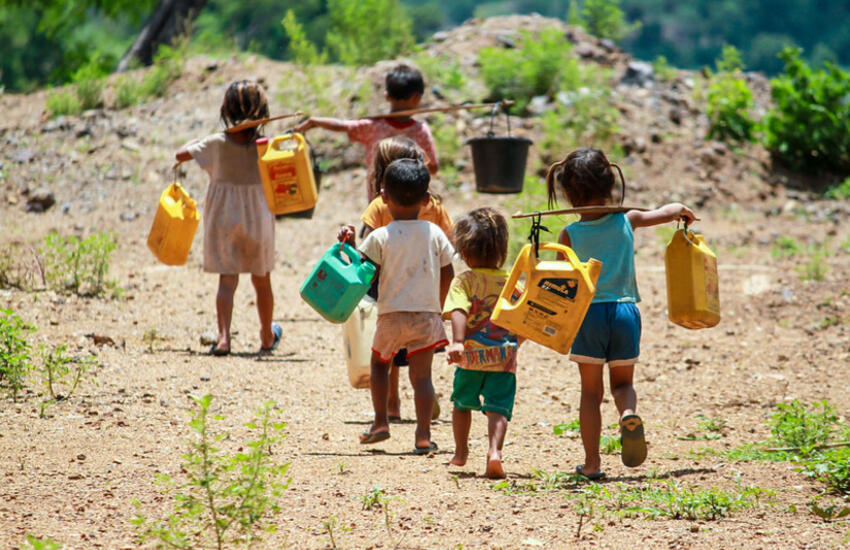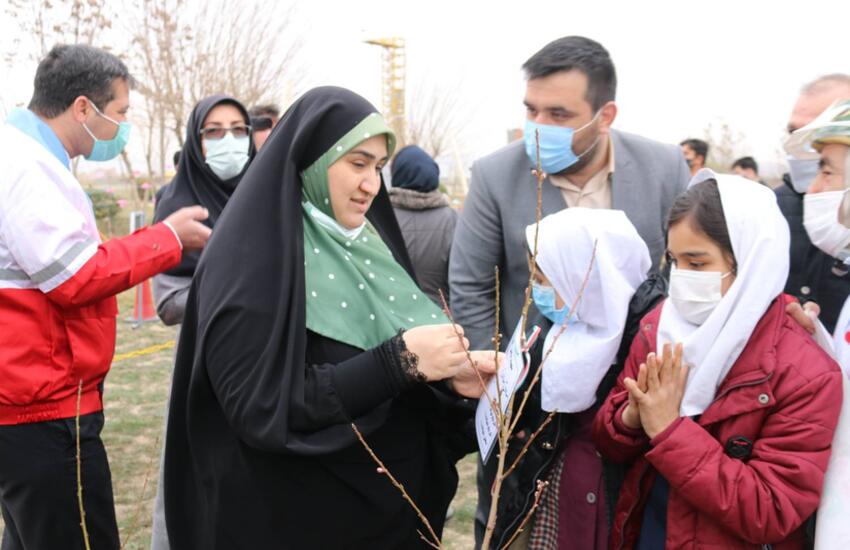As part of the IPU’s climate campaign Parliaments for the Planet, we are focusing on good climate practice by parliaments around the world which can be replicated elsewhere. The European Parliament, an IPU Associate Member, is a good example of a parliament that has taken some progressive and ambitious steps when it comes to sustainability and climate action.
Linked to the IPU’s 10 actions for greener parliaments and those who work in them, the European Parliament has adopted the following key actions to reduce its carbon footprint and promote a greener future.
Institutionalizing the greening of parliaments
1. Cutting emissions: Tracking and reducing parliament's carbon footprint
Goal: To establish a comprehensive environmental management system to reduce the European Parliament’s environmental footprint and track progress.
Action taken:
In 2007, the European Parliament established a comprehensive environmental management system, becoming the first parliament in the European Union (EU) to achieve the prestigious Eco-Management and Audit Scheme (EMAS) registration.
With each legislative term, the Parliament sets ambitious environmental targets, focused on greenhouse gas emission reduction, and commits to achieving them through annual EMAS action plans.
In 2021, the Parliament exceeded its target by reducing carbon emissions by an impressive 59.7% compared to 2006.
2. Transparent greening: Shining light on sustainable practices
Goal: To foster openness and accountability by providing detailed information to the public on the Parliament's environmental performance.
Action taken:
The European Parliament ensures transparency through an annual Environmental Statement, which outlines the actions taken, progress made, and environmental impacts of the Parliament's initiatives, and which undergoes third-party verification. Additionally, there are regular meetings with representatives from each department, promoting transparent environmental management.
3. Building resilience: Climate-proofing parliamentary operations
Goal: To enhance climate resilience and adaptability within the European Parliament's operations and increase its renewable energy production by 25% by 2024 compared to 2012.
Action taken:
While the Parliament has not faced climate-induced damage, it has adopted the following measures to increase climate resilience:
• Reduced the minimum (winter) and increased the maximum (summer) temperatures in its buildings to save energy.
• Implemented innovative, energy-efficient air filtration technologies to reduce energy consumption.
• Planned to install 2140 solar panels by the end of 2023, and began preparations to install further panels in 2024.
• Committed to greater use of heat pumps by the end of 2024.
• Collected rainwater to reduce dependency on fresh drinking water.
Greening the way parliaments and their members work
4. Sustainable business: Paving the way for a greener parliament
Goal: To integrate environmental considerations and sustainability criteria into all administrative activities of the European Parliament.
Action taken:
Environmental considerations are integrated into all administrative activities through the Parliament's environmental policy. Key performance indicators focus on reducing water, gas, oil, heating and electricity consumption, as well as increasing renewable energy production on site.
The Parliament has already achieved a significant reduction in paper consumption through digitalization and aims to eliminate paper-based processes.
5. Green procurement: Policies that power environmental progress
Goal: To classify over 90% of contracts as “green” by 2024.
Action taken:
The European Parliament is firmly committed to green public procurement principles: this approach includes greening contracts for office supplies, maintenance, construction works, catering and transportation.
To assist in implementing green elements into contracts, the Parliament established a green public procurement helpdesk for the 23 participating EU institutions and bodies.
6. Sustainable transportation: Parliament's eco-friendly commute
Goal: To reduce greenhouse gas emissions from transport by 30% by 2024 compared to 2006 levels.
Action taken:
The EU Parliament encourages sustainable transportation by using high-speed chartered trains between Brussels and Strasbourg and providing public transport subsidies of up to 90% to eligible staff.
The Parliament continues to renew its car fleet with electric and hybrid vehicles and promotes cycling and walking through the introduction of e-bikes, a gradual increase in the number of parking places for bikes and charging stations for electric cars.
7. Going digital: Parliament's leap into a sustainable future
Goal: To enhance digitalization efforts and reduce paper consumption by 50% in 2019-2024 compared to the average for 2010-2014.
Action taken:
The European Parliament promotes a digital-by-default approach to reduce paper usage. Various tools, such as online meeting software and remote conferencing, new digital signature technology and remote voting facilities have been implemented, enabling staff to work from home while maintaining productivity.
These digitalization efforts have led to a 66% reduction in paper consumption compared to the average for 2010-2014.
Leading and fostering a culture of sustainable change
8. Climate culture: Fostering awareness of sustainable practices
Goal: To cultivate a culture of sustainability and climate consciousness among the European Parliament's staff and members.
Action taken:
Through various initiatives, including being the first EU institution to launch a comprehensive food donation programme in 2016, and encouraging staff to adopt active modes of transport such as walking and cycling, the Parliament wants to set an example for promoting environmentally responsible behaviour.
9. Climate champion: Leading the way in environmental advocacy
Goal: To actively promote sustainability efforts beyond legislative work and engage with the public.
Action taken:
The European Parliament actively promotes sustainability during events open to the public, highlighting its actions and achievements in sustainability over the years.
Events like the European Parliament's annual Europe Day and the recurring European Youth Events serve as platforms to engage with visitors from around the world.
During these events, staff communicate the Parliament's commitment to sustainability. Furthermore, the European Youth Event 2021 and Europe Day 2022 obtained certification for sustainable event management, reflecting the Parliament's dedication to climate action in all aspects of its operations.
10. Collaboration for change: Sharing knowledge to save the planet
Goal: To foster collaboration and knowledge-sharing across all departments and political groups within the European Parliament.
Action taken:
The European Parliament collaborates with other EU institutions, national parliaments and international organizations to exchange best practices and jointly address environmental challenges.
Through its efforts in fostering a culture of sustainability, promoting climate awareness and prioritizing collaboration, the European Parliament’s green journey is a good example for other institutions and organizations worldwide to follow.
Find out more about the IPU’s campaign to mobilize parliaments to act on the climate emergency.












